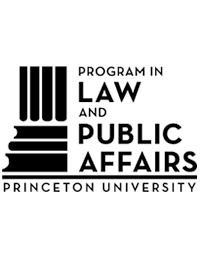
Graduate students, fellows, and faculty only, please.
RSVP requested for lunch.
Each seminar features law-related papers or practice job talks presented by graduate students from many disciplines.
Precis: Much has been made in the popular and policy press about the destruction of the US State Department under the Trump administration, and the need to rebuild it. Yet, despite this pressing policy need, almost no scholarly work has considered the dynamics of political development in US foreign policy institutions in the modern period, leaving current scholarship ill-equipped to diagnose the problem and offer an affirmative agenda for reform. In this paper, I analyze the State Department and USAID Redesign, and the USAID Transformation (T3), conducted under Secretary of State Rex Tillerson. Using Mill's Method of Difference and the unique "sister agency, sibling rivalry" cultural relationship between State and USAID, I show how two differences - bureaucratic culture towards reform/efficiency, and presidential efforts to delegitimate an ideologically opposed bureaucracy - led to divergent outcomes when the agencies simultaneously undertook major, coordinated reforms in response to the same government-wide Executive Order. The failure of Redesign and uncommon success of T3 underscore, respectively, the speed with which bureaucratic autonomy can be delegitimized and an agency retrenched, and the importance of mezzo/leadership convergence and communications in successfully reforming a national security agency. These findings hold scholarly implications for institutional development and retrenchment in the context of American foreign policy. They help explain why Redesign failed in its prima facie aims - though succeeded in retrenching the State Department - while T3 at USAID succeeded, as well as the bureaucratic motivation behind diplomats' resistance to President Trump as seen during impeachment.
Ryan Dukeman is a PhD student in the Politics Department, where he studies political development and institutional reform in US foreign policy agencies. He previously helped found the State Department's Center for Analytics, and worked as a researcher at the Legislative Branch Capacity Working Group, a think tank project in Washington. He received an A.B., summa cum laude and Phi Beta Kappa, from Princeton's Woodrow Wilson School in 2017, and was awarded the Richard H. Ullman prize for best thesis in US foreign policy for his undergraduate thesis, "Legislative Diplomacy: The Impact of Congressional Reform on the Role of Congress in Foreign Policy, 1970-2015."

